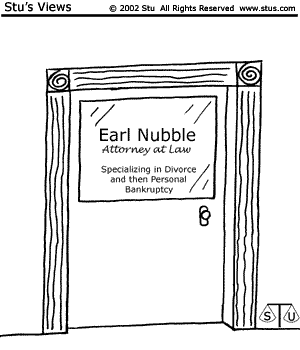Written By: Lenorae C. Atter, Attorney
Wood, Atter & Wolf, P.A.
 Text messaging has replaced phone calls for many people, especially those going through a bitter divorce. When text messaging shows communications that may help a court better understand a situation or issue surrounding the divorce, a Florida court may allow such communication. As a family law attorney in Jacksonville, Florida, I have had to use text messaging to prove that my client has been harassed or that the other party has threatened harm on the children. The text messages must be proven to the court to have come from the parties. What typically is shown are the phone messages, in the phone and a hard copy produced as almost a screen shot. It is important to establish certain criteria to have the text message entered as evidence to the court for proof of origin and content. Simply writing the text messages will most likely not be allowed in court since there is a higher chance of error in copying.
Text messaging has replaced phone calls for many people, especially those going through a bitter divorce. When text messaging shows communications that may help a court better understand a situation or issue surrounding the divorce, a Florida court may allow such communication. As a family law attorney in Jacksonville, Florida, I have had to use text messaging to prove that my client has been harassed or that the other party has threatened harm on the children. The text messages must be proven to the court to have come from the parties. What typically is shown are the phone messages, in the phone and a hard copy produced as almost a screen shot. It is important to establish certain criteria to have the text message entered as evidence to the court for proof of origin and content. Simply writing the text messages will most likely not be allowed in court since there is a higher chance of error in copying.
 Holiday Visitation can be challenging when going through a divorce and sometimes even after the divorce is over. Emotions are often heightened during a holiday so rational negotiations can be a challenge. If necessary, you may seek help from a third party such as a mediator or lawyer to reach an amicable resolution.
Holiday Visitation can be challenging when going through a divorce and sometimes even after the divorce is over. Emotions are often heightened during a holiday so rational negotiations can be a challenge. If necessary, you may seek help from a third party such as a mediator or lawyer to reach an amicable resolution.  Jacksonville Divorce Lawyer Blog
Jacksonville Divorce Lawyer Blog


 Florida alimony laws have been scrutinized over the years because we do not have an alimony calculation, but simply calculate alimony based on factors of marriage duration; contribution to the marriage; marital lifestyle; etc. In addition, the type of alimony to be awarded has not been constant and there can reasons for providing permanent alimony to a short-term marriage and short-term alimony to a long-term marriage. These factors combined with a theoretical number based on marital assets; debts; and other lifestyle contributors has made alimony payors afraid of the term alimony.
Florida alimony laws have been scrutinized over the years because we do not have an alimony calculation, but simply calculate alimony based on factors of marriage duration; contribution to the marriage; marital lifestyle; etc. In addition, the type of alimony to be awarded has not been constant and there can reasons for providing permanent alimony to a short-term marriage and short-term alimony to a long-term marriage. These factors combined with a theoretical number based on marital assets; debts; and other lifestyle contributors has made alimony payors afraid of the term alimony. Alimony in Florida can be defined as a spousal support established to help keep both parties in the same lifestyle to which they were accustomed during the marriage. Alimony has been established for individuals that are divorcing that have a lack of ability to earn income based on their contributions to the marriage. The idea is that the spouse that has put his/her career on hold will be financially harmed by the divorce due to lack of income, job experience and the like. Permanent alimony is designed to help keep the status quo the marriage for the parties.
Alimony in Florida can be defined as a spousal support established to help keep both parties in the same lifestyle to which they were accustomed during the marriage. Alimony has been established for individuals that are divorcing that have a lack of ability to earn income based on their contributions to the marriage. The idea is that the spouse that has put his/her career on hold will be financially harmed by the divorce due to lack of income, job experience and the like. Permanent alimony is designed to help keep the status quo the marriage for the parties.  In Florida, divorces involving alimony have gone through significant changes in the last couple of years. In 2010 the Florida law changed to include definitions of short-term marriages as anything less than seven years; moderate-term marriages are those that last 7 – 17 years and long-term marriages are those lasing over 17 years.
In Florida, divorces involving alimony have gone through significant changes in the last couple of years. In 2010 the Florida law changed to include definitions of short-term marriages as anything less than seven years; moderate-term marriages are those that last 7 – 17 years and long-term marriages are those lasing over 17 years.  Alimony in Florida has changed in the last couple of years. In 2011, the alimony law has been changed and will take effect on July 1, 2011 regarding all pending divorce cases and any new modifications of old divorce cases. However, the alimony changes to the law cannot be used to modify an old order.
Alimony in Florida has changed in the last couple of years. In 2011, the alimony law has been changed and will take effect on July 1, 2011 regarding all pending divorce cases and any new modifications of old divorce cases. However, the alimony changes to the law cannot be used to modify an old order.  Florida divorce laws regarding alimony have changed in the last two years. Alimony, as late as 2009, basically held that there were short-term, the gray area and long-term marriages for purposes of determining the amount of alimony and how long it would be paid. In 2010, the Florida legislature provided a new standard for determining what these terms of art actually mean. For instance,
Florida divorce laws regarding alimony have changed in the last two years. Alimony, as late as 2009, basically held that there were short-term, the gray area and long-term marriages for purposes of determining the amount of alimony and how long it would be paid. In 2010, the Florida legislature provided a new standard for determining what these terms of art actually mean. For instance, Text messaging has replaced phone calls for many people, especially those going through a bitter divorce. When
Text messaging has replaced phone calls for many people, especially those going through a bitter divorce. When  Florida requires parents going through a divorce or paternity case to keep their children in the front of the issues. North Florida courts require that parents complete a course sponsored by the Department of Children and Families that teaches parents about issues regarding a split home and the effects it may have on the children. The course in Jacksonville Florida is called, “
Florida requires parents going through a divorce or paternity case to keep their children in the front of the issues. North Florida courts require that parents complete a course sponsored by the Department of Children and Families that teaches parents about issues regarding a split home and the effects it may have on the children. The course in Jacksonville Florida is called, “ Using emails in your divorce or
Using emails in your divorce or  In your Florida
In your Florida